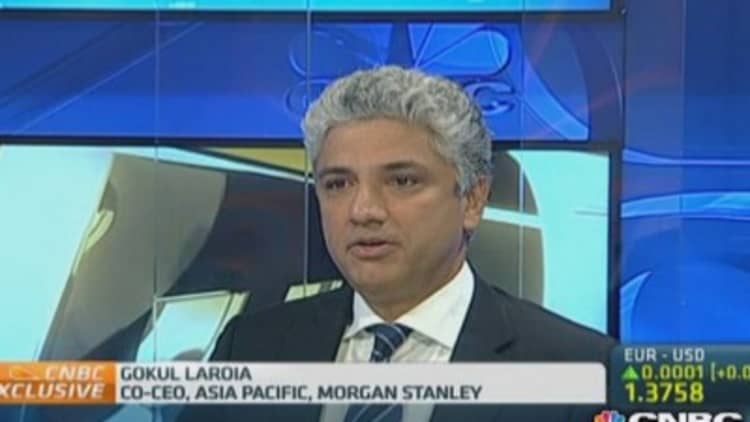Investors may have fallen out of love with emerging markets (EM) but some economists say the tide is turning as EM stocks catch up with developed market peers.
April was the first month in over a year in which emerging-market-focused exchange traded funds (ETF) and mutual funds saw inflows, Capital Economics said. Funds offering exposure to the entire region rather than specific countries attracted the most money. As a result year-to-date returns for EMs and developed markets (DMs) are broadly equal.
"Investors' growing enthusiasm for emerging market equities has seen their underperformance vis-à-vis developed market equities begin to unwind," said John Higgins, chief markets economist at Capital Economics.
Read MoreBlackBerry aims to revive emerging market sales
Investors hastily pulled money out of EMs when the Fed first broached tapering its asset purchase program last May, prompting a sharp depreciation in EM currencies. There was also fresh pain early this year amid sharp declines in EM currencies including the Argentine peso and Turkish lira.
But sentiment has improved amid signs of strength in the U.S. and European economies. Stock markets in India, Indonesia, the Philippines, South Korea, Thailand and Vietnam have seen strong demand from overseas investors in May. India's Sensex has rallied near 10 percent so far this month, for example, while Indonesian stocks are up around 2.7 percent.
According to Rajiv Biswas, Asia Pacific chief economist at IHS Global Insight, three factors underlie the improvement: the process of rebalancing portfolios away from EM and into DMs has been completed; investors expect stronger U.S. and E.U. growth to boost export momentum for EMs; investors are better at differentiating between the region's stronger and weaker countries.
However, Biswas noted that special factors have supported some emerging markets leading to stock market rebounds. In India, for instance, the positive sentiment associated with the recent election results has attracted foreign investors.

Don't get too excited yet
The asset class still faces significant headwinds, according to Capital Economics. Although the house expects EM prices to rise in tandem with developed markets, it does not expect them to outperform their developed market counterparts.
"Emerging market equities continue to face several headwinds, including less accommodative U.S. monetary policy, structurally slower growth in the BRICs (Brazil, Russia, India and China), weak commodity prices, and political instability in a number of places," Higgins added.
Read MorePimco's bad bets on emerging markets add to firm's troubles
Slower growth in the BRICs combined with Fed tapering could dull foreign investor appetite for EMs as an asset class, slowing capital inflows, the analysts warned.
"The main downside risk to the rebound of emerging markets would be a hard landing in China," added IHS' Biswas.
"This would create a large negative shock to global equity markets and result in another round of risk aversion by global investors," he said.


